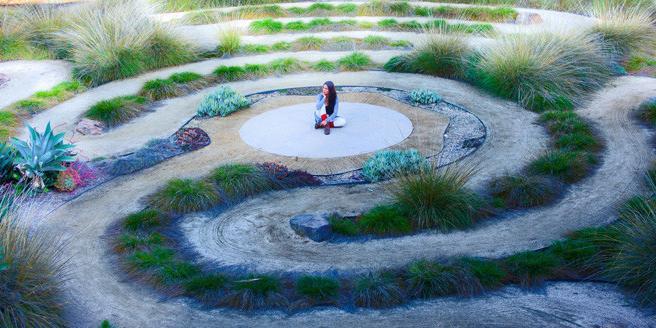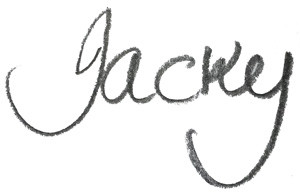“The human condition – lost in thought.” Eckhart Tolle
This last week, I have noticed that I have been reflecting on Mindfulness itself. The more I am invited to share my practice with others, the more curious I become. It’s become a new habit and a new auto-pilot. It was very interesting to notice that. It was also very interesting to become aware of a glimmer of an old behavioural pattern that likes to analyse everything – and I detect an element of fear. I thought that one had been put to bed, but no – suddenly it was being given energy and license to come to life in a new way. “Ha ha – caught you” I hear myself saying.
Pema Chodron talks about a Tibetan word that points to a familiar experience that can manifest as a behaviour that can ultimately cause us to suffer. No one else is causing the suffering. We just cause it for ourselves quite easily. The word is shenpa. Her personal experience of shenpa is a feeling of ‘getting hooked’ and a realisation that there is preference sitting in the driving seat. I recognise this in myself as I reflect on her words.
Shenpa is gluey, familiar feeling that we notice deep inside when a shift occurs because of something we notice, or something that has been said to us – that seemingly, we don’t like. Mine always manifests as a tightened coil in my solar plexus. Anything can trigger it from critical words, breaking or losing something I like that I’m maybe a bit attached to, or perceiving something – not necessarily true – that triggers this response. It is so subtle, something we all recognise, and yet something so hard to describe – just a feeling. Sometimes feelings have no words at all. And why should they.
The trick is catching shenpa, knowing that feeling is there, and daring to sit with it and allow it to unfold, no matter how uncomfortable it might feel. If we don’t catch shenpa – then we get carried away on auto-pilot, reacting in our habitual way, and ultimately suffering as a result.
So, this morning, I caught shenpa. That seemed like a feat in its own right. And I sat with this feeling inside when I became aware that I had been dwelling a lot on mindfulness itself lately. Dwelling on mindfulness doesn’t seem like a bad thing on the surface, but as I opened, softened and allowed the feelings to unravel, I realised there was a fear lurking deep inside.. and this was triggering feelings of unworthiness. Somehow, deep inside I had been telling myself a story that I don’t know enough about mindfulness. Yet mindfulness is a journey and unfolds as an experience. This deep yearning within that unfolded appeared to be a desire to relieve my own suffering and it related to my innate habit of ‘trying too hard’. As always I want to run before I can crawl. At the beginning of the mindfulness journey in the Level 1 Being Present Course, participants are reminded that mindfulness can make them feel like things are getting worse. This isn’t the case, it’s more like turning up the dimmer switch in a darkened room and suddenly seeing the rubbish swept under the carpet or the dust and cobwebs in the corners. We don’t know what’s there until that shenpa feeling arises and we dare to look at what’s happening.
Mindfulness isn’t about getting rid of thoughts or feelings. It isn’t absence of thought or a way to relax or ‘bliss out’.
Mindfulness is “Knowing what is happening while it is happening – whatever it is – without preference” (Rob Nairn) and “Paying attention in a particular way: on purpose, in the present moment, and non-judgmentally.” (John Kabat-Zinn)
In our mindfulness practice we are encouraged to allow everything to be as it is. To allow feelings, thoughts and emotions to arise without denial. By giving them space to breathe, with a softness and kindness, we are able to understand ourselves better. The gift that mindfulness offers us is the potential to change and respond differently.
So, armed with this gift, I was able to allow and soften around this habitual, tight behaviour of analysis and ultimately release and free the fear that lurked in the shadows deep inside. My response? Was to do nothing. Just allow and soften. As I did this the tight coiled up feeling in my solar plexus vanished as if by magic. Had this not happened I could see myself falling to the mercy of my mind in downward spirals as I spun stories of unworthiness that weren’t true. I would have then driven myself into the ground, trying too hard, and not even knowing what I was trying too hard at. Life maybe?
Mindfulness teaches us to notice whatever arises with an attitude of curiosity, kindness and softness in a relaxed way. It shows us how to be okay when we are not okay and fully experience discomfort. It helps us to intersect the momentum of habitual behaviour on the autopilot that tends to rule our lives. Pema Chodron describes it resisting the urge to scratch that itch.
Without catching shenpa I can even imagine myself drifting to the grave, trying ever so hard to die well. Hopefully my ingrained habit will have changed to a gentle response by then.
“It’s dark because you are trying too hard.
Lightly child, lightly. Learn to do everything lightly.
Yes, feel lightly even though you’re feeling deeply.
Just lightly let things happen and lightly cope with them.
I was so preposterously serious in those days, such a humorless little prig.
Lightly, lightly – it’s the best advice ever given me.
When it comes to dying even. Nothing ponderous, or portentous, or emphatic.
No rhetoric, no tremolos,
no self conscious persona putting on its celebrated imitation of Christ or Little Nell.
And of course, no theology, no metaphysics.
Just the fact of dying and the fact of the clear light.
So throw away your baggage and go forward.
There are quicksands all about you, sucking at your feet,
trying to suck you down into fear and self-pity and despair.
That’s why you must walk so lightly.
Lightly my darling,
on tiptoes and no luggage,
not even a sponge bag,
completely unencumbered.”
(Aldous Huxley)
Weekly Challenge
This week the invitation is to notice ‘shenpa’ and catch it. Noticing that feeling when you are triggered and reacting to something, whatever it is, no matter how irrational or small. When you notice – then catch it, gently, and allow the feelings to unfold and unravel as part of your experience of being here, with this human body and tricky mind without a manual.
I would love to hear your comments – please do email me at membership@mindfulnessassociation.net
Take care
Warm wishes
Jacky has contributed a chapter to the Mindful Heroes Book entitled “Turning Empathic Distress into Compassion – A Hero’s Journey for Family Carers”. You can hear an extract from the chapter where she talks about the results of her MSc Studies in Mindfulness on Compassion & Family Carers. You can download a free sample of Jacky’s chapter here.



